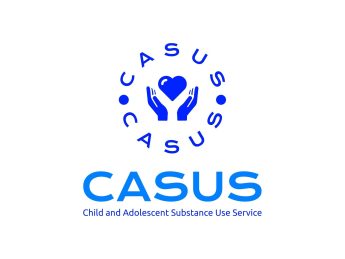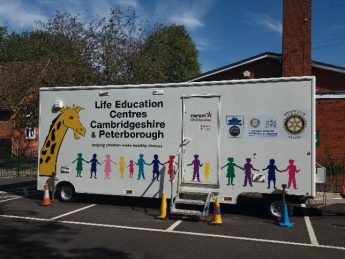To nurture the skills of resilience is key to providing young people with the ability to cope with stress, adversity, failure and challenges. Resilience is evident when young people have a greater ability to “bounce back” when faced with difficulties and achieve positive outcomes.
Resilience is required to refuse an opportunity provided in a social group to try or take illicit substances.
Drug is a word which can conjure up very negative connotations. Many adults assume the purpose of Drug Education is solely to warn children and young people away from drugs using ‘just say ‘No’’ messaging. However, Drug Education in schools today is much more rounded and balanced. It focuses on harm reduction, delaying first use of recreational drugs (both legal and illegal) and acknowledging the essential role of medicines in the lives of many. It aims to reduce the development of harmful patterns of substance misuse in later life, which may impact on aspiration, quality of life, physical health and mental wellbeing. Drugs are defined by the World Health Organisation as substances ‘which affect how you think, feel or behave’. This wide definition encompasses medicines, alcohol, nicotine, solvents and illegal recreational substances. When teaching children and young people the skills they need to make healthy, informed choices about drug use, schools should build awareness of safety, identifying reliable information, sources of support, influences from friends, media and family, and development of attitudes to self, others and the law.
The issue locally and nationally
In Cambridgeshire and Peterborough, we have a clear picture of the patterns of drug use by young people. In Summer 2022, over 40 secondary schools participated in the Health-Related Behaviour Survey which explores knowledge about drugs, exposure to them and the numbers of young people choosing to use nicotine, alcohol and illegal substances. Contact the PSHE Service (mail to:[email protected]) for more information.
In Cambridgeshire in 2021, 6% of Y8 and Y10 students said they had ever taken an illegal drug in 2021, down from 9% in 2018. 17%, down from 20%, said they had been offered cannabis. These figures show that drug users are in a significant minority amongst young people, whilst perceptions amongst young people and adults are often higher.
- Alcohol and drug use by young people raise the risk of poorer immediate and long-term outcomes.
- One in five (22%) of 15 year olds in England report having been drunk in the last week and two in five (38%) say they have ever taken drugs.
- Over 10 thousand secondary school pupils were excluded from school for either a fixed term or permanently in 2018-19 for alcohol and drug issues.
- PHE prevalence estimates suggest is that there are 26 children per 1,000 in England who live with a parent with an opiate or alcohol problem. That translates as 25 pupils in an average secondary school and 7 in an average primary school. That is based on an average secondary school having 965 pupils and an average primary school having 282 pupils.
- Among 15-year olds in England, 5% regularly smoke cigarettes and 6% do so occasionally.
What is known to work
Drug Education in isolation has a limited effect, if any. When Drug Education is delivered in the context of a holistic PSHE programme, where the school environment supports protective factors, the effectiveness is greatly increased. Pupils should receive Drug Education in a carefully sequenced programme, which presents the learning in age-appropriate segments, building on prior learning.
Although the focus of Drug Education is often a topic considering substances and their effects, the role which wider areas of PSHE play must not be underestimated. Learning about self-awareness, influences, resilience, healthy relationships and mental and emotional health all contribute to children and young people’s ability to make healthy, informed choices.
For Further information on good practice see Evidence Review -Effective drug and alcohol education (downloadable from the PSHE Association)
Key actions for schools to take
- Develop a whole school approach to support and provide accurate information on drugs through education and targeted information such as the following:
- Provide accurate information on drugs and alcohol through education and targeted information, such as via the FRANK service
- Work with local voluntary organisations, health partners, the police and others to prevent drug or alcohol misuse services including Aspire
- Develop a drug policy that sets out the schools’ role in relation to all drug matters, is recommended, covering:
- The content and organisation of drug education.
- The management of drugs and medicines within school boundaries and on school trips.
- Have a designated, senior member of staff with responsibility for the drug policy and all drug issues within the school.
- Develop the policy in consultation with the whole school community including pupils, parents/carers, staff, governors and partner agencies.
- Ensure that the policy is consistent with their safeguarding policy.
- Establish and manage relationships with local children and young people’s services, health services and voluntary sector organisations to ensure support is available to children and young people affected by drug misuse (including parental drug problems).
Drug use is a concern in many communities. Risk taking behaviours like taking drugs, drinking alcohol, smoking and truancy tend to ‘cluster’ together, and the reasons for this are complex. Risk factors such as living in poverty, family difficulties and bullying can lead to disengagement from school, which in turn increases the likelihood of disruptive behaviour, drug smoking, drinking and drug use.The school community have a key role is preventing or delaying harmful use of drugs in children, young people.
Summary guidance provides recommendations for targeted interventions to prevent misuse of drugs, including illegal drugs, ‘legal highs’ and prescription-only medicines for schools and school communities.
Schools are discouraged to use approaches that are proven to be least effective, such as scare tactics, ex-users and knowledge-only approaches.
Parents and carers are offered information and advice to enable them to support their children.
Use clear referral pathways, for example into school nursing, school counselling, early help services, voluntary sector services, young people’s drugs and alcohol services or to a youth worker, as needed.
Source: PHE December 2020
By the end of primary school pupils should know:
- The facts about legal and illegal harmful substances and associated risks, including smoking, alcohol use, and drug taking.
Source: Relationships Education RSE and Health Education (DfE) Relationships Education, Relationships and Sex Education and Health Education guidance (publishing.service.gov.uk)
By the end of secondary school pupils should know:
- The facts about legal substances and illegal substances, including drug-taking, and the associated risks, including the link to serious mental health conditions.
- The law relating to the supply and possession of illegal substances.
- Awareness of the dangers of drugs that are prescribed but still present serious health risks.
Source: Relationships Education RSE and Health Education (DfE) Relationships Education, Relationships and Sex Education and Health Education guidance (publishing.service.gov.uk)
Local Support

#POW
We’re a young people’s drug and alcohol service. We’re here to listen and support young people who are having trouble with alcohol and drugs. Who We Are We are a free and confidential drug and alcohol service for young people aged between 10 and 18. We won’t judge or tell you what to do, we
Read More About #POW
CASUS
Cambridgeshire Child and Adolescent Substance Use Service (CASUS)provides information, support and specialist treatment in Cambridgeshire around drug and alcohol use to young people under 18 years of age and their families. CASUS is a NHS team that specialises in working with young people who have developed problematic or harmful use of substances. We see young
Read More About CASUS
Keep Your Head
The Cambridgeshire and Peterborough Integrated Care System (ICS) Partners have refreshed the Keep Your Head website. It continues to provide a central hub of high quality information on mental health and mental health services. It also offers tailored and age-appropriate information for children and young people, adults, professionals and schools on a wide range of
Read More About Keep Your Head
Life Education Cambridgeshire & Peterborough
Life Education is a primary prevention programme focusing on drug and health education. We explore with young people how amazing their bodies are and how the human body can be affected by drugs. We develop understanding around physical and mental health. Through the ‘life skills’ approach, children are enabled to practise how to make healthy
Read More About Life Education Cambridgeshire & PeterboroughResources
External Links
- Adfam
- Cambridgeshire Recovery Service
- Casus
- Change Grow Live
- DfE Teacher training: drugs, alcohol and tobacco
- Drugwise
- Keep your head – Online safety
- Keep your head – Substance misuse
- PHSE Association – Drug and alcohol education
- Rise Above Drinking, Smoking, Drugs Articles
- Talk to Frank
- The Mix Essential Support for Under25s
- youngminds.org Parents Guide to support Drugs and Alcohol



